Meet the Doctoral Scholars
The LINAS Doctoral Training Programme (DTP) seeks to develop a cohort of Doctoral Scholars who can address the implications of massive-scale data processing, artificial intelligence (AI) and machine learning (ML) for both the actual operation of algorithmically driven public decision-making in wider society, and within science and engineering.

My project investigates the international security implications and politics concerned with AI gatekeeping. I will specifically focus on three key areas. Each of these operates at a different level of analysis, building up to a global picture.
The three chosen foci are Secrets, Races, and Regulations:
- How forms of secrecy and non-knowledge are enacted through AI Gatekeeping (e.g., effects on nuclear secrecy, media discourses on security politics etc.)
- How international competition over AI developments (AI arms race) may be shaped by gatekeeping concerns (how does the AI arms race itself shape how security-related AI is created and how gatekeeping functions; and how does AI gatekeeping change the ways states engage in strategic signalling to manage the security dilemma)
- How international processes of emerging AI governance engage gatekeeping concerns.
I was drawn to LINAS programme because it offers the freedom to explore ideas with the support of top experts in AI and algorithms. The programme’s resources and flexible approach allow me to dive deeper into my interests in artificial intelligence, security politics and gatekeeping.
LINAS programme feels like the perfect place to advance my research and grow professionally. The interdisciplinary supervision and wider LINAS programme provides a supportive and engaging research community that is exploring emerging AI technologies and practices and their ethical and societal implications.
Primary Supervisor - Dr Mike Bourne (School of HAPP)
Second Supervisor – Dr Sandra Scott-Hayward (School of EEECS)
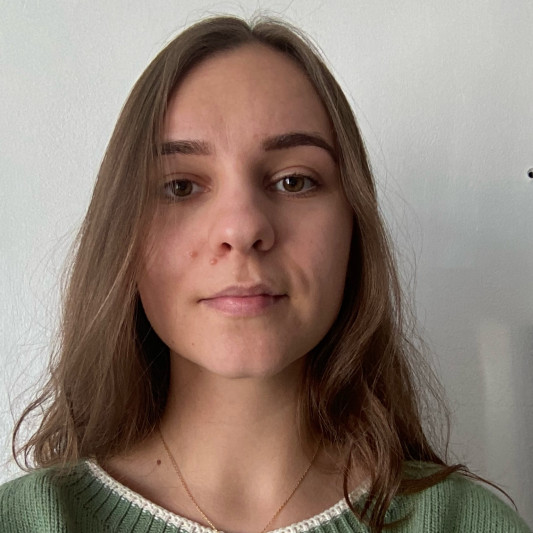
Jessica’s research is focused on the characterisation of open quantum dynamics. Tracking the evolution that results from the interaction between a quantum system and it’s surrounding world is a key challenge for the development of quantum technologies.
Since quantum systems are particularly complex, the data generated by them appears noisy, unclear, and even redundant. The aim of the project is to develop machine learning techniques to analyse open quantum systems and extract relevant information."
Primary Supervisor - Dr Alessandro Ferraro (School of M&P)
Secondary Supervisor - Professor John McAllister (School of EEECS)

Samantha’s project focuses on the use of algorithmic advice in decision-making. Algorithms are increasingly available as decision aids, ranging from the benign, such as route planning, to the influential, such as healthcare treatment and investment advice. While algorithms often generate more accurate predictions than their human counterparts, previous research has exposed a tendency to ignore their recommendations, known as algorithm aversion.
Her research aims to identify strategies to counter and reduce algorithm aversion, employing hybrid intelligence as a tool. While the focus will be on strategies for the average user, she is also interested in researching how individual differences, such as personality, may be correlated with the use of algorithmic advice.
The LINAS environment is invaluable for Samantha’s research as there are a broad scope of scholars and staff available from disciplines related to the project topics, such as Computer Science and HAPP, as well as relevant training offered through the programme, for example, in computer coding.
Samantha has an interdisciplinary background, completing a BA (Hons) in Social Policy and Women’s Studies here at Queen’s, followed by a PGCE in Citizenship and Humanities at Exeter. She returned to Queen’s to study the MSc in Psychological Sciences, graduating just before beginning the DTP with LINAS. She says, “I am thrilled to be on the LINAS DTP. The interdisciplinary nature of the LINAS programme particularly appealed to me due to the wealth of expertise available from the wide array of academic staff and scholars involved as well as the range of projects currently underway. Additionally, the enthusiasm and sense of community overall within the programme has made the beginning of my PhD journey even more exciting and much less daunting.”
First Supervisor: Dr Thomas Schultze-Gerlach (School of Psychology)
Second Supervisor: Professor Muiris MacCarthaigh (School of HAPP)

My research will concentrate on the relationship between humans and artificial intelligence in unmanned aerial systems, specifically focused on the governance and regulation of drones in the domain of warfare. My research seeks to address the ethical and legal issues concerning the utilisation of AI unmanned aerial systems in warfare, including surveillance, privacy, and accountability through the development of an effective regulatory framework.
I was drawn to the LINAS programme while completing my LLM in law and technology. The interdisciplinary aspect of LINAS was intriguing to me as it combines several disciplines, from computer science to law, to address the rapid evolution of technology and the impact it creates for contemporary society. I am thrilled to be joining a programme that creates a forum for students and academics from various disciplines to learn and encourage each other in the endeavour of addressing implications and discovering solutions that innovative technologies present in modern society.
Primary Supervisor - Dr Pratyush Nath Upreti (School of Law)
Secondary Supervisor - Dr Vishal Sharma (School of EEECS)

Felix’s research addresses harm in police use of open source intelligence. The internet and social media offer law enforcement agencies a potential source of information on suspected criminals. This information can then be shared and stored on databases, which are accessed by police and law enforcement partners. When open source intelligence is interpreted inaccurately, this can result in adverse consequences, including people being falsely labelled as criminals.
Issues such as relevance of data and the assumptions involved in its collection and use are therefore important. Felix’s project follows the data journeys through which open source intelligence is gathered, analyses the interpretation and distribution of this data and explores its outcomes for the subjects of the data. The overall aim of the project is to identify harms which result from use of open source intelligence by police.
Felix has always been interested in the contradictions and nuances of our relationship with technology. Therefore, LINAS’ interdisciplinarity was appealing because it allows insight into multiple aspects of intertwined social and technological changes. Felix was also drawn by the convergence of researchers from diverse disciplines. This presents an opportunity for broadening his perspective beyond his social science background by learning to think in new ways.
Primary Supervisor – Dr Teresa Degenhardt (School of SSESW)
Secondary Supervisor - Dr Deepak Padmanabhan (School of EEECS)
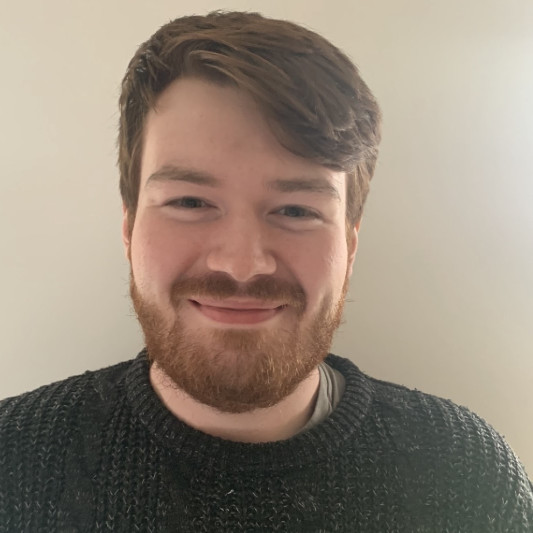
Marc's research focuses on the concept and practice of transparency, and how it applies to the classic underlying data-processing algorithms. His research intertwines computer and social sciences through investigating the human-data interaction that exists and by exploring the advancement of algorithmic transparency.
Popular machine learning algorithms, such as neural networks, are 'black-box' type models that are inherently not transparent and raise ethical concerns due to their transparency only being considered as an afterthought. Marc aims to challenge these classic algorithms, by utilising radically different ways of deriving insight from data that are inherently transparent in nature and developed in the context of edge computing.
The LINAS postgraduate programme appealed to Marc as it offers a much greater academic scope than any single disciplinary project could feasibly provide. LINAS provides an engaging integrated environment that allows Marc to amalgamate his computer science background with social sciences to research ethical algorithmic solutions. Marc's research would only be possible through the support and interdisciplinary development opportunities provided by the LINAS Doctoral Training Programme.
Primary Supervisor - Dr Deepak Padmanabhan (School of EEECS)
Secondary Supervisor - Professor Muiris MacCarthaigh (School of HAPP)

Suzy’s research investigates how generative AI interprets and infers meaning from human-created stories, with a special emphasis on subtext, an essential yet often subtle component of storytelling. While AI models like ChatGPT can craft coherent narratives, they struggle to replicate the subtext that human writers intuitively convey.
This project explores the extent to which AI can infer subtextual meaning compared to human interpretation revealing the limitations and challenges within AI-generated storytelling.
By working with writers (human ones!) to create new, subtext-rich narratives, and through methods such as analyzing both human and AI responses to micro-stories, Suzy’s research aims to pinpoint where AI falls short in its understanding of deeper meaning. The implications of this work extend beyond storytelling, offering insights into how AI systems might misinterpret nuanced human communication, especially in decision-making contexts where inference is crucial.
With a background in creative writing and scientific study, Suzy found the LINAS programme’s commitment to innovative and cross-disciplinary research both attractive and inspiring. Her interdisciplinary approach aligns well with the LINAS Doctoral Training Programme and she hopes throughout her PhD to enhance our understanding of AI’s role in human communication and culture.
Primary Supervisor - Dr Jane Lugea (School of Arts, English and Languages)
Secondary Supervisor - Professor Austen Rainer (School of EEECS)

Karli’s research explores questions of responsibility at the automated border. Adopting a material-semiotic approach and engaging with Critical Race Theory, she investigates the racialized character of automated borders, where blame lies for racialized border decisions, and the impact of these decisions upon the bodies of irregular migrants.
Karli was drawn to the interdisciplinary nature of the LINAS programme as a result of her experience working within a cyber security organisation and her previous study of Politics and International Studies.
Primary Supervisor - Dr Mike Bourne (School of HAPP)
Secondary Supervisor - Dr Deepak Padmanabhan (School of EEECS)
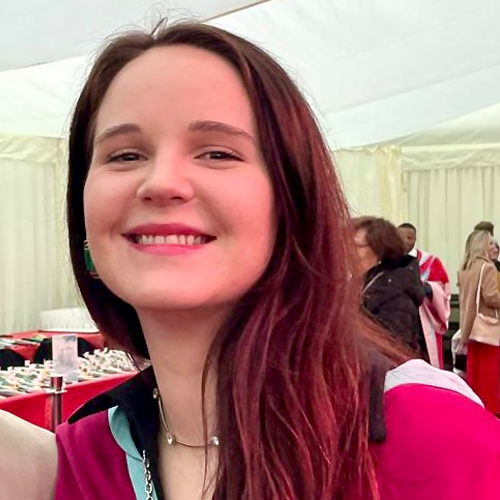
My research project investigates the multi-fold challenges posed by algorithmic decision making in the realm of online content moderation. It focuses particularly on the development of technological and regulatory solutions that prioritize the preservation of fundamental rights and freedoms, whilst allowing for effective and accurate moderation of user generated content (UGC).
The shift toward the domination of the web by UGC and the multiplication of online service providers (OSP) has exponentially facilitated the spread of unlawful and problematic content, which has brought forward the necessity to computerize the moderation process. Algorithmic-powered content moderation tools are often deemed less likely than their human counterparts to understand and interpret context and to computerize legal requirements, and therefore less likely to make consistent decisions accordingly. Moreover, the scale at which algorithms moderate content can usher systematic and gross violations of free speech, due process and other rights. Here lies an overall tension between the need to foster clean online spaces in line with the rule of law, to preserve OSPs interests, and to foster all relevant human rights.
The approach to online content moderation has been overall characterized by the self-governance of platforms with little legal obligations or responsibility regarding the removal of problematic or unlawful content. Nonetheless, this hands-off approach to moderation has recently come increasingly under attack, because of the sheer volume of content flowing through platforms, and because of the costs and magnitude of problematic content. The UK and the EU have recently amended their regulatory landscape, introducing stronger expectations regarding the moderation of online content (respectively introducing the Digital Service Act 2022 and the Online Safety Bill 2023).
This research is critical in fostering a delicate equilibrium between algorithmic and specifically AI innovation and the development and enforcement of regulatory safeguards for a human centric approach, as one of the primary challenges faced in OSP governance today is the tension between the rights of the various parties, and the interests of the platforms themselves.
Having completed a LLM in International Human Rights Law at the University of Galway, and the Law and Technology LLM here at Queen’s University, I am thrilled about the opportunity to further my academic education and pursue research at a doctoral level on a project which intertwines both areas of expertise. The LINAS doctoral training programme appears to me as the most enriching space to conduct research on the convergence and interplay between algorithmic solutions, their utilization in public decision-making processes, and the ensuing social, societal and political implications. The cross-field and collaborative dimension of the programme provides many opportunities to develop open-minded and innovative ways of conducting doctoral research necessary to bring meaningful contribution to the field.
First Supervisor: Professor Giancarlo Frosio (School of Law)
Second Supervisor: Dr Oluwafemi Olukoya (School of EEECS)
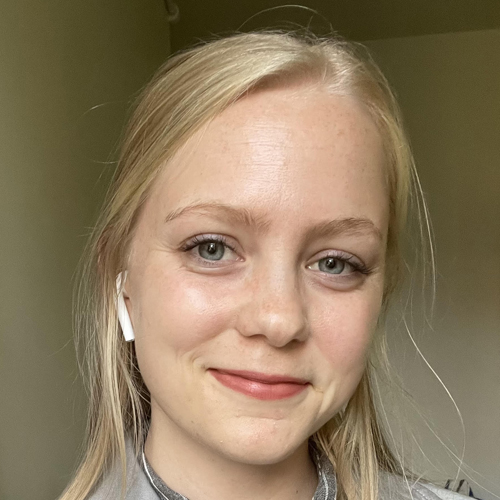
Emily’s work examines the evolving discussions surrounding responsible use and governance of AI-powered weaponized drones. This requires the examination of the influence of humans on artificial intelligence systems, the impact on the targeting and deployment of uncrewed aerial vehicles (UCAVs), and who should be held responsibility for collaboration between humans and AI or autonomous decisions made by AI. The project integrates the Human Loop theory, and will explore the degrees of human influence in deploying UCAVs through the lens of governance and algorithmic generation processes.
“As a security practitioner, I was confronted by the individual, communal, and global impacts of the theories and concepts I learned about in my undergraduate and master’s degrees. I was drawn to the LINAS programme because of its interdisciplinary focus which I knew would allow me to explore and integrate the diverse array of complex topics I encountered in my professional life. The LINAS program framework allows for engagement across many fields which I believe is vital for critical engagement practices in government, law, and technology developers as we confront the rapid technological developments impacting our world today.”
First Supervisor: Dr Michael Bourne (School of HAPP)
Second Supervisor: Dr Vishal Sharma (School of EEECS)
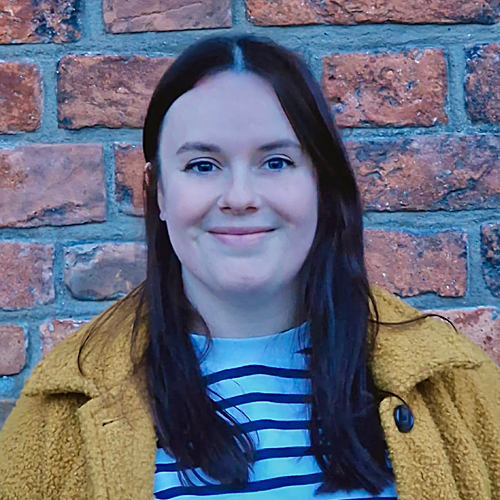
Anna's research explores the use of affective computing algorithms that claim to be able to read emotions from facial expressions. She addresses the scientific soundness of facial expression recognition software by focusing on the reliability of the ground truths and psychological theories that underpin them. Her research then seeks to bridge the gap between these foundational theories in affective computing and their application within neurodiverse communities, questioning how these technologies interpret the nuanced expressions and communication styles of autistic individuals.
Anna's work will engage directly with the autistic community, including autistic people, their families, educators, employers, and advocacy groups. In this way, Anna's research will amplify neurodiverse voices and experiences, enriching the dialogue around affective computing and neurodiversity. By focusing on the lived experiences of the autistic community and the ethical dimensions of facial expression recognition software, the research aims to advocate for the integration of diverse needs and experiences in the development and application of AI technologies."The interdisciplinary focus of the LINAS programme represents a cornerstone of my research journey, blending the studies of affective computing, experimental psychology, and ethnography. I’m thrilled to contribute to LINA’s overarching objectives, engaging with peers from varied backgrounds and projects. The opportunity to share, learn, and innovate within such a dynamic and supportive environment is truly invaluable to me."
First Supervisor: Dr Gary McKeown (School of Psychology)
Second Supervisor: Dr Raluca Roman (School of HAPP)
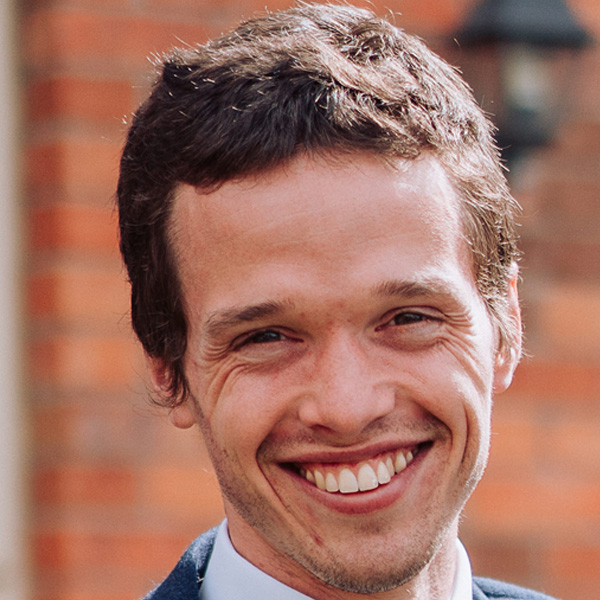
Adam's research explores how the use of algorithms in legal technology impacts how legal knowledge is understood and applied. The combined practical and theoretical questions involved are well-suited to a range of interdisciplinary methods and approaches.
The nature of both legal problems and their solutions has always been informed by available technology, but the accelerating nature of change makes these questions especially timely. They sit at the convergence of law, computer science and anthropology, and the project aims to combine these disciplines to produce a model for evolving structures of legal knowledge and their interaction with a shifting technological landscape.
"Being involved in a shared and collaborative research space like LINAS is not only a great model for developing ideas, but also makes the experience of doing so far more rewarding. I'm excited to be involved and keen to make a contribution to the wider aims of the doctoral program, working alongside colleagues with the same goals, but very different projects and experiences."
Primary Supervisor – Dr Ciarán O’Kelly (School of Law)
Secondary Supervisor - Dr Deepak Padmanabhan (School of EEECS)
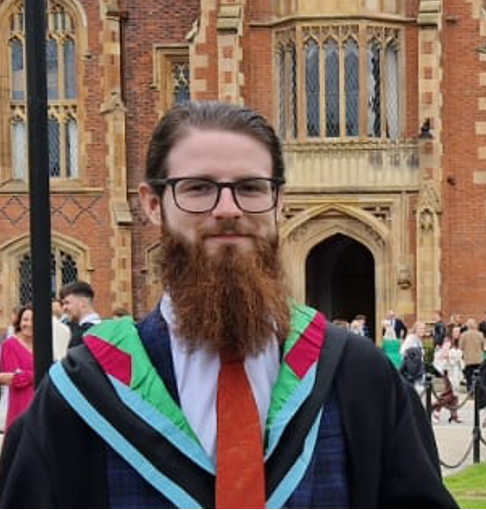
Dylan’s research focuses on developing a machine-learning algorithm to identify tidal disruption events (TDEs), which occur when stars are ripped apart by the intense gravitational forces they experience as they approach supermassive black holes. TDEs are a relatively recent astronomical discovery with a small catalogue of observations. They are vital for investigating the properties and feeding conditions of otherwise incredibly difficult to observe black holes.
The Vera C. Rubin Observatory will soon begin its 10-Year Legacy Survey of Space and Time (LSST), which will result in a 100x increase in the number of transients we observe. Transients are astrophysical phenomena which appear in the sky for a relatively short duration of time that durations varying from only a few seconds to a few weeks, depending on the object. Examples of transients include supernovae (the explosive death of a star) and TDEs. With this greatly enhanced discovery rate, it will no longer be possible for researchers to manually interpret all the transients discovered. Therefore, we need machine learning methods to prioritise the interesting ones for detailed follow-up study. Dylan’s participation within the Supernova Group in the QUB Astrophysics Research Centre also involves frequent discovery and classification of other astrophysical transients, such as supernovae and active galactic nuclei.
Another key aspect of Dylan’s research is investigating the potential environmental impacts of astronomical research. The immense scale of data processing required for the new large sky surveys will likely have a significant carbon dioxide output, hence contributing to anthropogenic climate change and negatively impacting the environment. This is an overlooked area of research with relatively little existing literature, but it is of key importance to ensure the sustainability and viability of future research. Dylan will conduct an assessment of the potential environmental impacts of LSST and will develop possible policy suggestions to limit and mitigate the environmental impacts of astronomy.
LINAS’ interdisciplinary nature appealed to Dylan as it presented a wealth of engaging and interesting opportunities for intellectual development. The availability of perspectives from experts in a variety of fields is incredibly beneficial at the beginning of an academic career and promotes the development of unique and innovative ideas.
Primary Supervisor - Dr Matt Nicholl (School of M&P)
Secondary Supervisor - Dr Marisa McVey (School of Law)
Third Supervisor - Dr Thai Son Mai (EEECS)
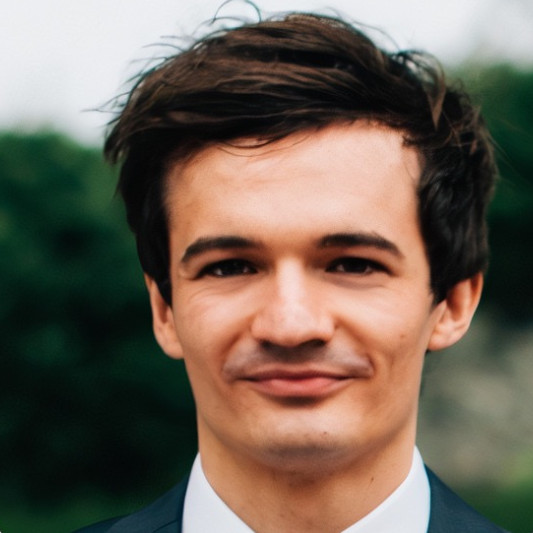
David’s research revolves around the dynamics for confidence with algorithmic decision-making. Individuals and organisations are becoming increasingly reliant upon algorithms to process large quantities of data that directly affect the everyday lives of ordinary people in multiple arenas.
This can be seen across social media, commerce and public policy/decision making. It therefore becomes increasingly important to ensure these processes are secure, legally compliant, and safe.
I was intrigued by the multi-disciplinary nature of the LINAS programme, particularly this project of mine which fuses Law with Computer Science, two areas I have great interest in. The nature of the LINAS programme means I am constantly surrounded by experts from a range of disciplines, this is an incredible experience and opportunity.
Primary Supervisor – Professor John Morison (School of Law)
Second Supervisor – Dr Sandra Scott-Hayward (School of EEECS)

Jason’s research focuses on the development of artificial intelligence systems for security purposes, with a particular focus on borders. Jason comes from an interdisciplinary background, having studied both computer and social sciences.
Using ethnographic research methods, he is exploring the development of AI-enhanced security systems on the Irish border.
Primary Supervisor – Dr Teresa Degenhardt (School of SSESW)
Secondary Supervisor - Dr Hans Vandierendonck (School of EEECS)
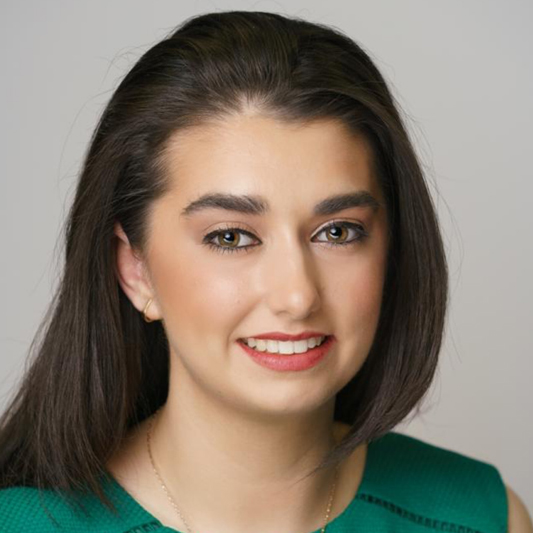
Anna Montgomery has joined the LINAS Doctoral Training Programme after completing a Law Degree, and more recently, the LLM in Law and Technology, at QUB.
Anna’s project will be supervised by QUB School of Law’s, Dr Ciarán O’Kelly, and Dr Sandra Scott-Hayward, from the School of Electronics, Electrical Engineering, and Computer Science.
Anna’s project argues that domestic abusers attack their victim-survivors ‘file selves’ when they exercise coercive and controlling behaviour that is facilitated by using smart home technologies. Such technologies are often treated as simple affordances and can therefore be taken advantage of for malicious purposes by abusers. This project unpacks a specific vector of harm stemming from this abuse that occurs in a smart home. This research contributes to the growing area of scholarship surrounding ‘technology-facilitated domestic abuse’ (tech abuse) and more specifically ‘smart home facilitated technology abuse’ (SHOT).
Anna draws on psychologist Rom Harré’s theory of Personal Being, in particular modes of embodiment as file selves to analyse this specific vector of harm that victim-survivors are subject to when they engage with and/or are in the vicinity of smart home devices controlled by their abuser. The negative impact of SHOT in particular is examined. Anna seeks to educate and inform lawmakers on this identified vector of harm and the necessity to protect file selves, through the intersection of psychology, technology and domestic abuse law.
Anna says that she is delighted to be pursuing her PhD with the LINAS DTP. She says “at the time of applying to the LINAS DTP, I was in the middle of my LLM in Law and Technology, and therefore the interdisciplinarity of the LINAS DTP was very attractive, particularly given my interests in socio-legal issues in the technology sphere. I also considered this a great opportunity to learn from academics and students who specialise in disciplines outside of law.”
Dr O’Kelly writes “Anna’s PhD work is directed at perhaps the main interface between people’s uses of technology and the presence of corporate managed devices in our lives. Her investigation will draw out the stark implications these devices pose for how corporate actors to know things and what they know; for the line from electronic sensing to social knowledge; and for the obligations commercial actors might have to respond to information gleaned ‘inadvertently’ from the devices they sell. In short, Anna will forge new frontiers in our understanding of how privacy is reconstructed by technological change.”
Primary Supervisor – Dr Ciarán O’Kelly (School of Law)
Second Supervisor – Dr Sandra Scott-Hayward (School of EEECS)
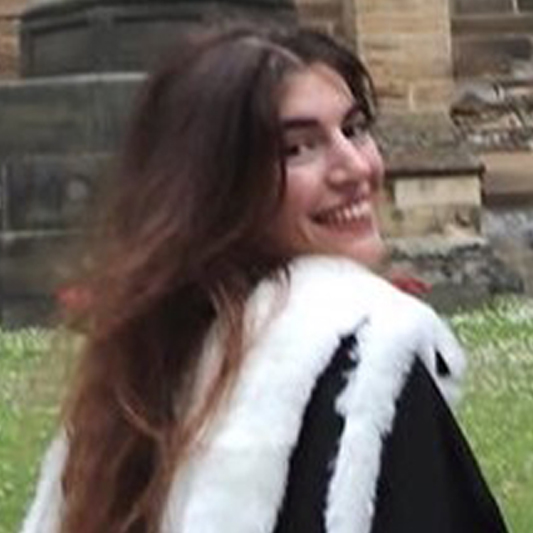
My project primarily focuses on the use of algorithms in the music industry, regarding the consumption and discovery of music by the public. There is currently a lack of regulation surrounding the formation and implementation of algorithms which is having detrimental effects on the ability for new musicians to enter and prosper in the market. My project aims to unpack how the use of these algorithms inflict bias towards the capabilities of new musicians and what regulation can be implemented such that there is a fairer system.
The LINAS postgraduate programme appealed to me because throughout my undergraduate degree in music and postgraduate LLM in law and technology, I have had the inclination to write about topics that are of an interdisciplinary nature. Having worked in the music industry as both an artist and music manager, I have first-hand experience of the struggles these algorithms pose on the capabilities for new musicians to establish themselves and make a career out of their art. The interdisciplinary nature of LINAS provides me with the opportunity to delve deeper and extensively outline the discrepancies in these algorithms, using both my undergraduate and LLM knowledge to overall create a project that intends to inflict a positive impact by creating a foundation for future research and emphasise the importance of this grey area in the field.
Primary Supervisor - Professor Giancarlo Frosio (School of Law)
Secondary Supervisor - Dr Hans Vandierendonck (School of EEECS)

Nora’s project sets out to examine algorithmic decision-making in the public sphere. Her work will combine insights from both Public Administration and Computer Science scholars. Therefore, the interdisciplinary nature of the LINAS programme will benefit her research greatly.
Primary Supervisor - Professor Muiris MacCarthaigh (School of HAPP)
Secondary Supervisor - Dr Deepak Padmanabhan (School of EEECS)
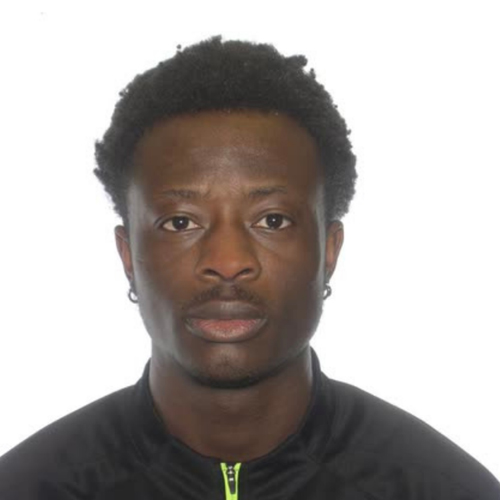
Habeeb secured a LINAS award to commence a doctorate in January 2024 revolving around machine learning algorithms used by traders and analysing the current market abuse laws.
The research will examine how these algorithms work, how they can be used as tools for market manipulation and how we can effectively regulate whilst encouraging innovation. The complexity and volatility caused by them means it is more important than ever to enact laws that curb unwanted behaviour. This is crucial for the goal of protecting investors, maintaining market stability, promoting fairness and transparency, managing systemic risks, supporting economic growth, and maintaining public confidence.
Habeeb will be supervised by Professor Giancarlo Frosio from the School of Law and Dr Oluwafemi Olukoya from the School of Electronics, Electrical Engineering and Computer Science
Habeeb stated, “I look forward to making a contribution to this field and acquiring the knowledge and skill that this will entail. My supervisory team will provide great insight from the fields of law and computer science, respectively."
Professor Giancarlo Frosio said, “Habeeb's LINAS doctoral project marks a significant step towards understanding and regulating the complex interplay between machine learning algorithms and market laws. This project aims to untangle these complexities to ensure market fairness and stability. I am confident that Habeeb's work will offer valuable insights into balancing innovation with robust regulation, crucial for maintaining investor trust and supporting economic growth. The supervisory team eagerly anticipates the impact this research will have on both academia and the broader financial ecosystem. We look forward to working with Habeeb on this exciting project in the coming years."
First Supervisor: Professor Giancarlo Frosio (School of Law)
Second Supervisor: Dr Oluwafemi Olukoya (School of EEECS)
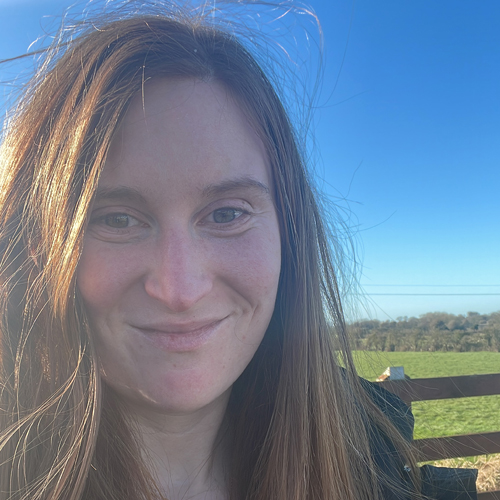
Fiona's research will explore the use of AI enhanced VR in training police officers to better identify and interact with people who have speech, language and/or communication needs (SLCN), aiming to enhance the fairness and effectiveness of their interactions with both offenders and victims.
Primary Supervisor - Dr John Taggart (Law)
Secondary Supervisor - Professor Karen Rafferty (School of EEECS)

The LINAS Talking Technologies project accepts that the age of the keyboard is beginning to end, our reliance on newly found Intelligent Voice Assistant’s from Apple’s Siri to Amazon’s Alexa will prevail. However, accompanying this technological revolution will be a number of regulatory and ethical issues as we move into an era in which we are always being listened to – whether we realise it or not! This project will identify the risks to us as users and address them, with the aim of making the move from keyboard to voice a positive and successful transformation.
“I am thrilled to be embarking on my PhD journey at Queens within the prestigious Mitchell Institute and LINAS Programme, along with the School of Law. Whilst it was always my ambition to complete my law degree and become a Barrister, I have been drawn to a journey in academia, primarily due to the inter-disciplinary nature of the Law and Technology LLM and now the LINAS programme - both here at Queens. The cross section of this inter-disciplinarity is an intersection that continues to widen, I am thrilled to be in the centre of this continuous development as it becomes more vital for everyone in our daily lives.”
Primary Supervisor – Professor John Morison (School of Law)
Second Supervisor – Dr Sandra Scott-Hayward (School of EEECS)
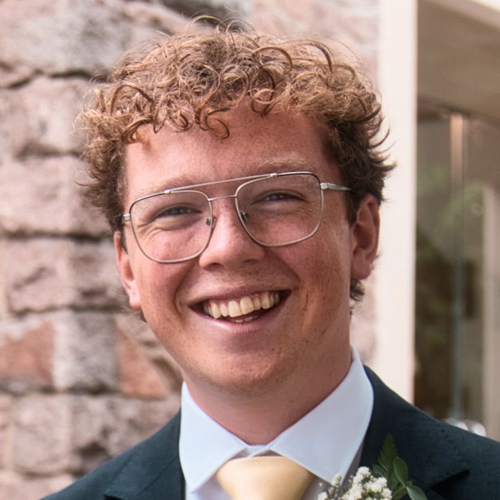
"I was originally attracted to the LINAS program because of its interdisciplinary nature. Coming from a humanities background it has ensured my research stays grounded, pairing the best humanities research approaches with those from the computer sciences. Giving me the opportunity to engage with professionals embedded in the context of each."
Joseph's research questions the use of artificial intelligence systems in public sector decision-making. The adoption of this emergent technology has the potential to compromise democratic decision-making processes. His research proposes that through proper respect for what is right about constructivist and realist ontologies. That intentional systems working to decipher the world they are a part of will be able to frame knowledge with adequate humility. In order to optimally engage with emergent intentionally directed technologies, vast processing capacity. Towards the goal of minimising the inherent loss of information that necessarily occurs in registering what are ultimately abstractions of the world around us, but needed abstractions in order to participate collectively in decision-making, that best recognises world as world, through accountability to those with whom they inhabit it.
Primary Supervisor – Professor Cathal McCall (School of HAPP)
Second Supervisor – Professor Austen Rainer (School of EEECS)

My research is focussed on the design and development of new AI architectures and algorithms for smart sensors and wearable devices. This research is also concerned with identifying ways in which we can reduce bias in new devices which is an issue that has become more and more apparent as AI is being deployed across more and more environments.
With the multi-discipline nature of LINAS, I get to engage with students and experts from other disciplines ranging from law to social science on a daily basis and I get to learn their viewpoints across a wide variety of research areas.
Primary Supervisor - Professor John McAllister (School of EEECS)
Secondary Supervisor - Dr Mike Bourne (School of HAPP)
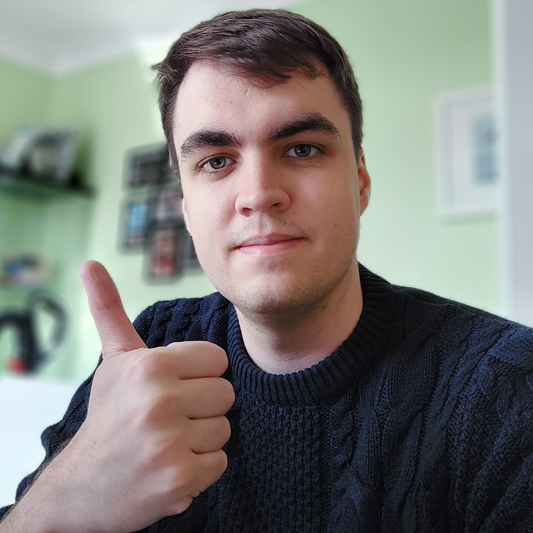
Josh’s work focuses on the use of machine learning algorithms in big data generated by astronomical sky surveys. As surveys grow in scope in depth there is increasing discussion in the astronomical community over who is responsible for scientific discovery in the use of external data and machine learning models. Josh will look to focus on the refinement of supernovae detection pipelines in these surveys while also engaging with these questions.
Josh was drawn to the LINAS programme’s interdisciplinary nature from his work in the finance sector and its use of machine learning models on customer data, as well has how their use was communicated to senior stakeholders within the industry. The use of predictive algorithms in industry is a booming trend and programmes such as LINAS are an opportunity to examine the implications with a broader scope.
Primary Supervisor - Professor Stephen Smartt (School of M&P)
Secondary Supervisor - Professor Muiris MacCarthaigh (School of HAPP)
